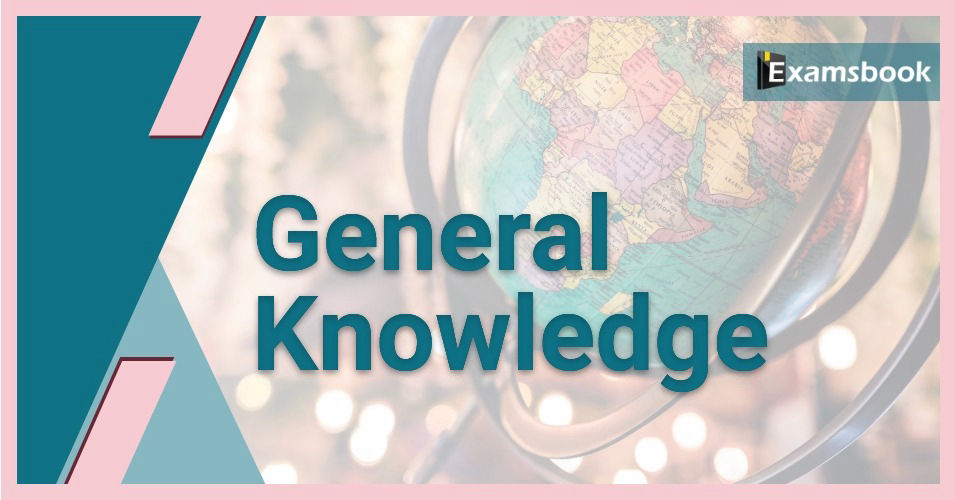General Knowledge (GK) 2023-24: GK Questions, Topics, Mock Test, Practice Quiz

With whom did Gandhiji sign an accord at the culmination of the Civil Disobedience Movement in 1930?
(A) Lord Irwin
(B) Lord Wavell
(C) Lord Curzon
(D) Lord Linlithgow
Correct Answer : A
Explanation :
Gandhi-Irwin Pact is the name given to a political agreement concluded by Mahatma Gandhi and Lord Irwin, the then Viceroy of India, on 5th March 1931.
What was the name of the magazine published by Mahatma Gandhi in South Africa?
(A) Indian Opinion
(B) News Harijan
(C) African
(D) Navjeevan
Correct Answer : A
Explanation :
On 4th June 1903, Mahatma Gandhi released his newspaper 'Indian Opinion' in South Africa to fight against racial discrimination and demand civil rights for Indians in that country.
The Prime Minister of England at the time of the Quit India Movement was?
(A) Chamberlain
(B) McDonald
(C) Churchill
(D) Clement Attlee
Correct Answer : C
Explanation :
Mounting pressure from China and the United States, as well as from the Labour Party in Britain, led Prime Minister Winston Churchill to send Stafford Cripps to India to discuss the Draft Declaration, as settled by the War Cabinet and its Committee between 28 February to 9 March 1942, containing proposals to resolve ...
Who among the following Delhi Sultans is known for introducing a market control mechanism?
(A) IItutmish
(B) Balban
(C) Alauddin Khalji
(D) Firozshah Tughlaq
Correct Answer : C
Explanation :
The correct answer is Alauddin Khilji. Alauddin Khalji introduced Market Control Policy.
Yahya bin Ahmed Sirhindi, the author of "Tarikh – i – Mubaraqshahi" lived in the period of-
(A) Khalji
(B) Tughlaq
(C) Sayyid
(D) Lodi
Correct Answer : C
Explanation :
Yahya bin Ahmad Sirhindi (nisba of Sirhind in Punjab) was a 15th century Indian Muslim historian who wrote Tarikh-i-Mubarak Shahi, a Persian language chronicle of the Delhi Sultanate. Written during the reign of Mubarak Shah, his work is an important source of information for the Sayyid dynasty.
Who was the 24th Tirthankara of Jainism?
(A) Udayin
(B) Mahavir
(C) Chandra Gupta
(D) Ashoka
Correct Answer : B
Explanation :
1. Jainism and Buddhism originated during the later Vedic period when the people were developing into Mahajanapadas.
2. Jainism was founded by Rishabhdev who was born in Ayodhya and his symbol was the bull.
Sl. No. - Name - Symbol - Birthplace
1 Rishabhnath (Adinath) Bull Ayodhya
2 Ajitnath Hathi Ayodhya
22 Neminath Shankh Dwarka
23 Parshvanath snake Kashi
24 Mahavir Singh Sher Kshatriyakund
During the reign of Alauddin Khalji, who was Amil?
(A) Government agents to collect land revenue
(B) Local landlords at the village level
(C) Khurasani and Multani traders of food –grains.
(D) Banjaras who carried the food – grains from village to towns
Correct Answer : A
Explanation :
In the revenue administration of Delhi Sultanate, the in-charge of revenue collection was known as 'Amil'.
The Sultan who described himself as Sikandar – i – Sani (The Second Alexander) was-
(A) Balban
(B) Alauddin Khalji
(C) Mohammad – bin – Tughlaq
(D) Sikandar Lodi
Correct Answer : B
Explanation :
Alauddin Khilji was an ambitious ruler whose ambition was to become like Alexander and ruled over the world. Therefore he called himself the second Alexander. He annexed Gujarat (1299), Ranthambore (1301), Chittor (1303) and South India (1307-1311) in order to fulfil his ambition.
Where did the traveller Ibn Batuta come from?
(A) Morocco
(B) Persia
(C) Turkey
(D) Central Asia
Correct Answer : A
Explanation :
Ibn Battuta was born in Tangier, part of modern-day Morocco, on February 25, 1304. This port city on the coast of the Atlantic Ocean lies 45 miles west of the Mediterranean Sea, close to the western side of the Strait of Gibraltar — where Africa and Europe nearly collide.
The original name of Tansen, the most famous musician in the court of Akbar was :
(A) Lal Kulwant
(B) Banda Bahadur
(C) Ramtanu Pandey
(D) Markandeya Pandey
Correct Answer : C
Explanation :
ansen was born somewhere between 1493 and 1500. He was born in the modern-day state of Madhya Pradesh in a Hindu family in the city of Gwalior. The original name of Tansen was RamaTanu Pandey.



